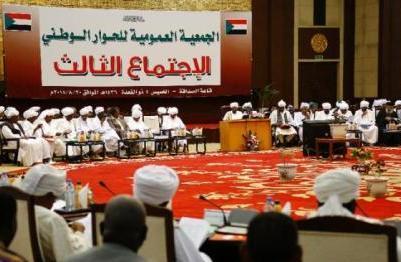Sudan’s dialogue process excluded some armed movements: official
October 21, 2016 (KHARTOUM) – Two members from Sudan’s dialogue body known as 7+7 mechanism have engaged in a heated verbal exchange regarding exclusion of some armed movements from the internal dialogue process.

The opposition groups boycotted the process because the government didn’t agree on humanitarian truce with the armed groups and due to its refusal to implement a number of confidence building measures.
In a talk show broadcasted by the public Radio Omdurman on Friday, the alternate chairman of the dialogue’s committee on creating conducive environment and member of the 7+7 mechanism, Osman Abu al-Majd stressed that a number of armed movements have been excluded from the dialogue.
He said that the 7+7 mechanism received complaints from a number of armed movements which were excluded from the process.
However, member of the higher coordination committee of the 7+7 mechanism Bishara Guma’a Aru, who participated in the talk show, has belied Abu al-Majd’s statements prompting the latter to ask for the formation of a committee to probe the issue.
“We must establish a committee to investigate this issue; I’m not making baseless claims …We would address the complaints and hold accountable those who caused the exclusion of some parties and movements from participating in the dialogue,” he said.
Last week, the general secretariat of the national dialogue issued an official notification in which it denied that any armed movement was excluded from the dialogue process.
On Thursday, the ruling National Congress Party (NCP) announced that the actual implementation phase of the national dialogue outcomes would kick-off next week.
Different leaders of the opposition Sudan Call alliance reiterated their rejection to the outcome of the process saying its conclusions has increased the powers of President Omer al-Bashir who will arbitrate any decision and will see the security and intelligence services attached to his office.
However they called to consider, the dialogue conference as the first phase of an inclusive process brokered by the African Union mediation, pointing that its recommendations will be considered as the position of the ruling National Congress Party and its allied forces.
(ST)
